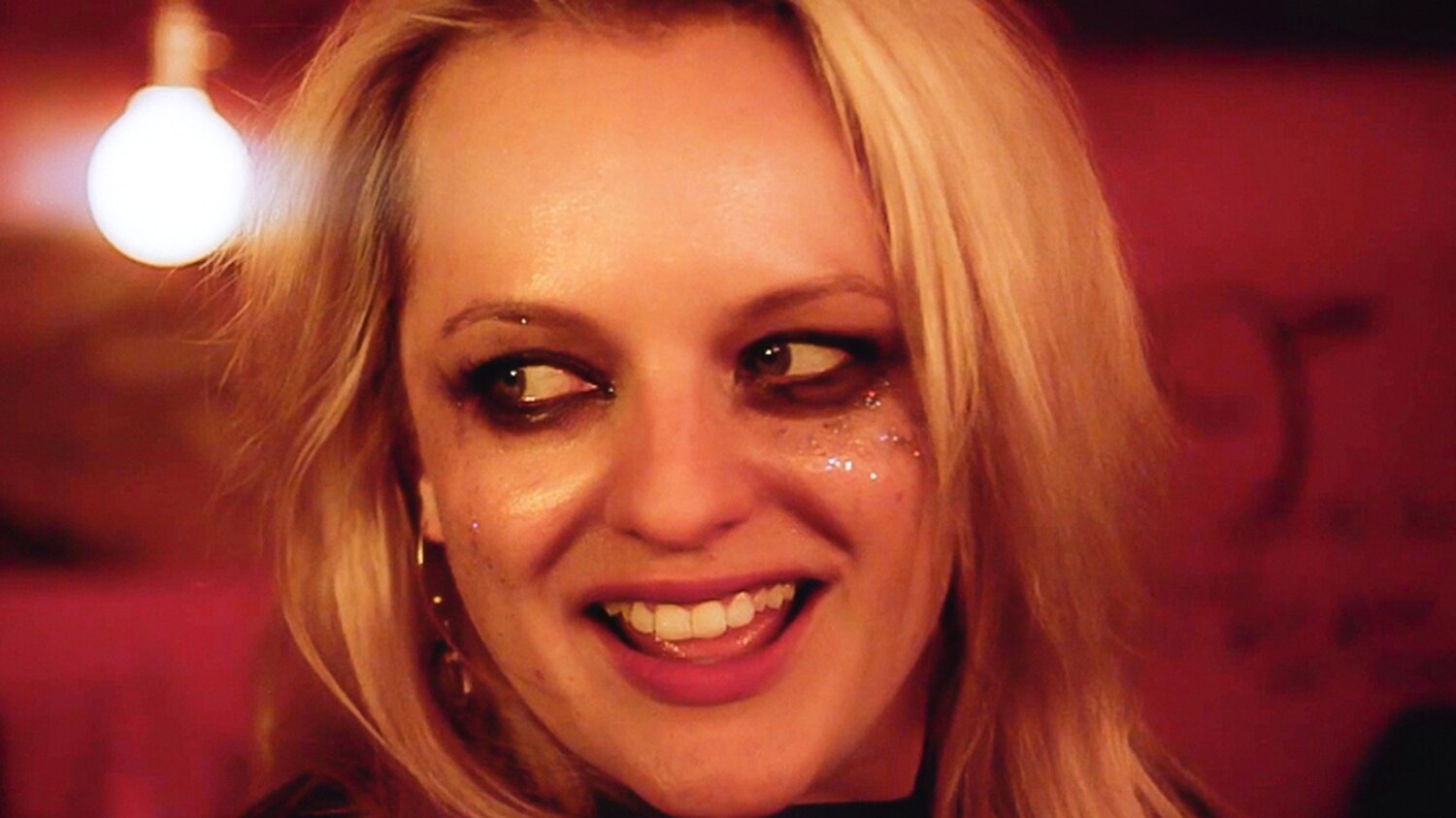
For cinema, 2020 has made a promising start to the decade. 1917 and Parasite have lead the way by continuing their success into the year, both enjoying well-deserved award circuits. Uncut Gems continues to prove why the Safdie brothers are exciting and prodigious talents, further cemented when they teamed up once again with Adam Sandler to treat us with a clever and funny short film, Goldman v Silverman. David Lynch, too, brought us a unique short film with his surreal monkey/cop interrogation piece, What Did Jack Do?, that finally premiered on Netflix.
Makoto Shinkai’s latest film, Weathering with You, has been released in the US and the UK to follow up his innovative and imaginative animation, Your Name. Promising Young Woman, starring Carey Mulligan, has been continually garnering great reviews globally. And we all wait patiently for Tenet, No Time to Die, and Dune – all surely going to be dominating the box office and every film publication this year.
But while we wait eagerly for those films and excite ourselves for the year to come, there still remains time to reflect and enjoy the films from the past year.
And 2019 did not disappoint. It was a year that marked the end of a decade, the end of the new Star Wars trilogy, and the endgame of Marvel’s Avengers. A year that saw master filmmakers Martin Scorsese, Ken Loach, and Pedro Almodovar return with poignant, important pieces of filmmaking. Greta Gerwig further cemented her presence as an ever-growing director making thought-provoking, female-lead films. While Noah Baumbach again proved to many why he has deserved award attention for a number of years.
Joanna Hogg’s The Souvenir was arguably the best film of last year, introducing Tilda Swinton’s daughter as a bright and exciting new acting talent. And Mark Jenkin surprised the mainstream audience with his post-synched, 16mm, black and white film Bait. It was also a year that boasted The Farewell, Atlantics, In Fabric, Midsommar, High Life, The Report, Transit – to name a small few.
Below, though, is a list that aims to add a few more titles into that “best of” discussion, aiming to shed light on films that perhaps deserve a little more praise or recognition.
1. Paddleton (2019, Alex Lehmann)
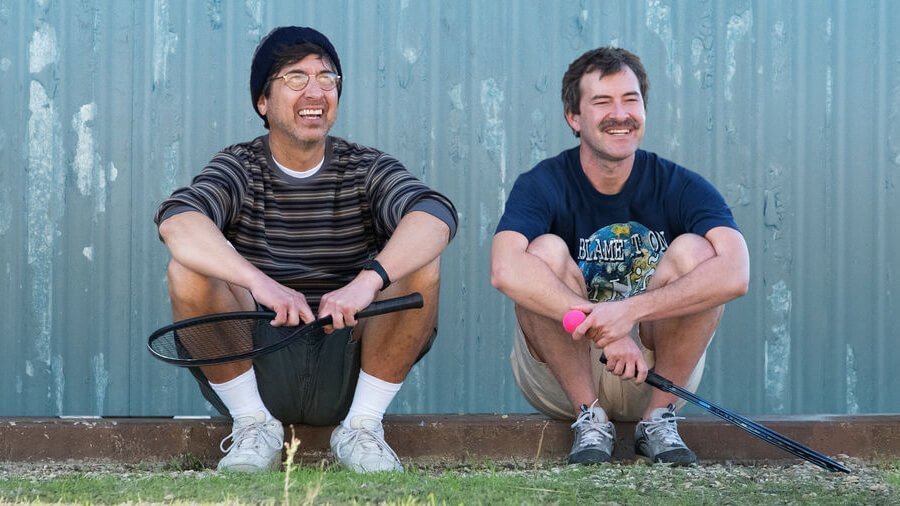
Paddleton was one of Netflix’s earlier releases in 2019 and was soon to be swamped by a swathe of other high profile, award films like The Irishman or Marriage Story. But this is all ok, because Paddleton is a modest tale of two friends intimately overcoming the tragedy that one of them has been diagnosed with terminal cancer.
Set primarily in their small apartment building, for which the two are neighbours, or at a sofa by a small patch of land where they play their odd, made-up game, Paddleton revels in its minute details and small scale. It balances pathos and humour brilliantly and the two obscure characters (played beautifully by Ray Romano and Mark Duplass) manage to imbue affection without ever pushing the sentiment too far.
It is Duplass’ Michael who is diagnosed and the news that he wants to end his life via prescribed drugs causes alarm for Romano’s Andy. They soon leave their apartment complex, though, and what ensues is an odd but light-hearted road trip that tries to reconcile Michael with his illness and reconcile Andy with the impending loss of his only friend.
This was not a film that blew minds upon release, but it is one that swiftly went under the saturated Netflix radar. A soft and tender film and one that deserves a fresh spot in the limelight.
2. Wild Rose (2019, Tom Harper)
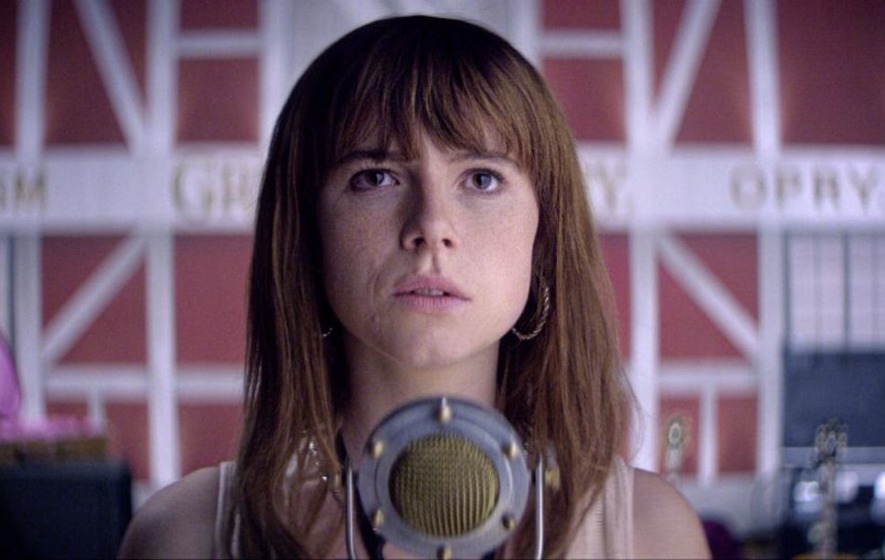
Jessie Buckley stars as a Glaswegian country singer recently released from a period in prison. Thrust back into her life, she is forced to balance her singing dream with domesticity and the reality of reconnecting with her two young children. Guided by the sagacity of her mother, who gets her a job as a house cleaner for a wealthy family, Rose-Lynn finally finds a way to channel her passion into meaningful relationships that both ground her and allow her to find her way back into her community.
Singing, for Rose-Lynn, is an opportunity to escape from her working class, Glasgow lifestyle, but it is only by realising her dream that she is able to come to terms with what really matters. Her trip to Nashville – a lifelong dream – becomes a fleeting, insignificant visit while her meeting at the BBC is marred by the theft of her belongings; it is only while she is home, either cleaning her flat or getting on stage at her local country club, that she finds solace and meaning for her music.
Julie Walters plays her mother: a woman lacking in all the answers, someone who is flawed and makes mistakes, but a mother whose heart is in the right places and mind is on the right people. She plays the role with subtlety (a performance that perhaps should have received more award attention) and while her character occasionally holds her daughter back she also manages to push her to do the right things. And it is only while Rose-Lynn is in Nashville, away from her home, that she realises her mother’s importance, pertinently portrayed when she singles her out of the crowd at her performance near the end of the film – performing a song called “Glasgow (No Place Like Home).”
3. Sword of Trust (2019, Lynn Shelton)
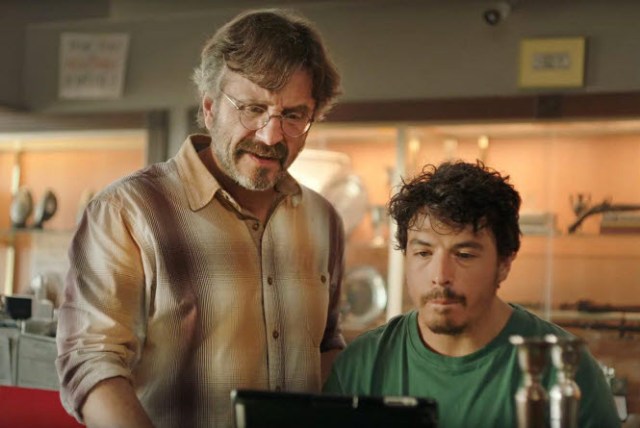
Sword of Trust, the new improvised comedy by Lynn Shelton, is a goofy tale about four unlikely characters trying to negotiate the sale of a sword believed to be evidence that the south won the Civil War. Mary (Michaela Watkins) and Cynthia (Jillian Bell) are the couple who inherited the sword, Mel (Marc Maron) and Nathanial (Jon Bass) are the two who work in the small pawn shop they try and sell it to. Once the two teams overcome one another’s grievances, they manage to find the perfect buyer elsewhere: a dangerous cult of Southern conspiracy theorists.
It is a silly premise for sure, but the lightweight plot is the perfect instigator for entertaining improvisation and caustic wit – headed by an excellent turn from podcaster and comedian, Marc Maron, who further strengthens himself as an assured actor with a poised screen presence. The film is further enhanced through minimal scene changes, focusing its time in small, claustrophobic locations that, too, give time and space for the improvisation to take full control over the character dynamics.
Sword of Trust is not a film with a brilliant narrative or major stylistic flair, but it is one that deserves more attention. A whole decade after her acclaimed film, Humpday, Lynn Shelton has proved why she got plaudits in the first place, making a funnier, wittier, and smarter film here.
4. The Nightingale (2019, Jennifer Kent)
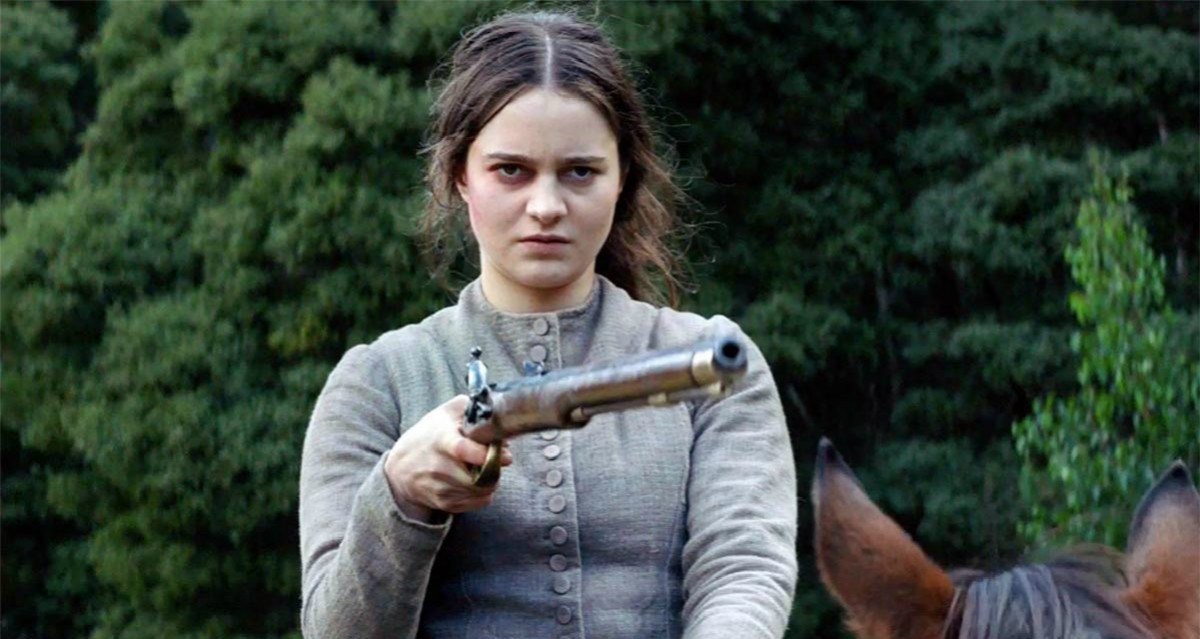
Clare (Aisling Franciosi), an Irish convict deported to Australia, lives a tough and rugged life in a small hut with her loving husband, new-born baby, and horse – luxuries provided by the perverted Lieutenant Hawkins (Sam Claflin), a sadistic, British colonialist who has taken a fancy for Clare. She is a hard worker, a beautiful singer (for which she is nicknamed ‘the nightingale’), and has worked long enough to receive papers that would give her and her family safe passage back to Ireland.
Hawkins, the only man who can acquire these papers, has other ideas though, choosing to hold Clare captive and use her, when he can, for his merciless enjoyment. After a run-in with her husband, Hawkins’ monstrous personality comes to the fore as he rapes and beats Clare, kills her husband and baby, and leaves her to die.
As Hawkins takes the voyage towards his captaincy in Launceston, a harsh trek over the Tasmanian landscape, Clare follows at his heels – lead by the help of Aboriginal tracker, Billy (Baykali Ganambarr). Bent on revenge, Clare stops at nothing, but what is highlighted through this long journey isn’t her trauma but the havoc the British have caused more broadly on the Aboriginal community: the fear of death looms heavily, either by gunshot or knife blade, lynching or starvation.
Jennifer Kent, Australian director of The Babadook, is unapologetically gruesome, here, and when people die they die with a harsh, gut-wrenching abruptness – a gun to the head becomes a recurrently dreaded image. It is also noticeable that Kent has stepped up in scale and scope, moving from the intimate family landscape in The Babadook to the vast Australian wilderness. But the grander the set design and cinematography is, the less supernatural the horror becomes, here opting to make the ‘monster’ a human but as a result making the horror more sinister and unpredictable.
An impressive piece of work and one that proves that Jennifer Kent is a versatile filmmaker. Her social critique is also at the forefront of the film, and she is a welcome fresh voice to the elusive territory of genre filmmaking.
5. Rolling Thunder Revue: A Bob Dylan Story by Martin Scorsese (2019, Martin Scorsese)
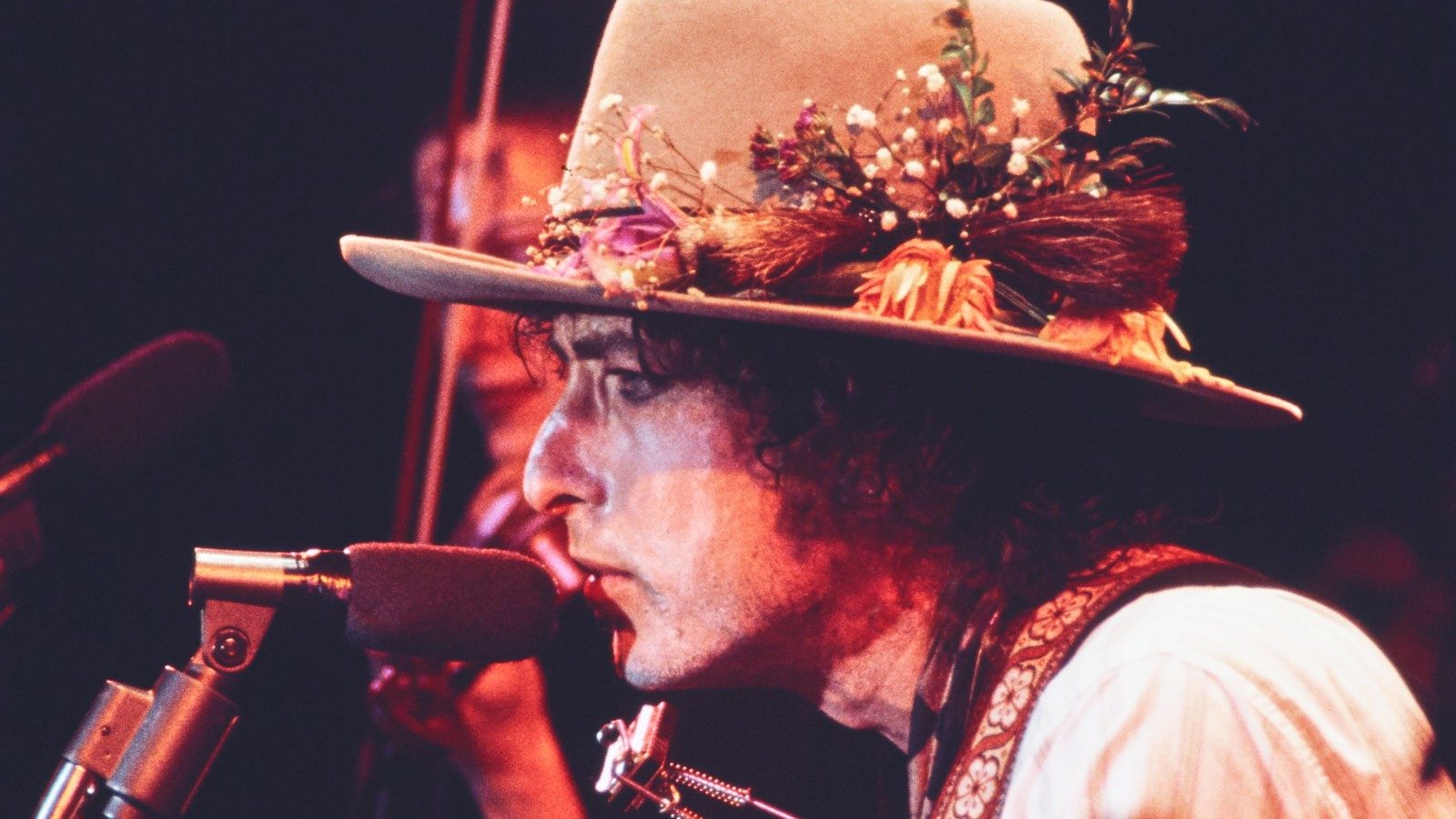
Rolling Thunder Revue rightfully got huge plaudits upon its Netflix release. But as the year unfolded, and as The Irishman became Scorsese’s new masterpiece, some may have forgotten Scorsese’s latest music documentary. And it perhaps isn’t too damning to say that some may forget Scorsese’s music documentary exploits altogether. A career defined by timeless mobster epics and sensational actor/director partnerships, his music documentaries are not the first to come to mind when thinking of Scorsese’s career. Though Scorsese is undoubtedly a music doc master too. His film about The Rolling Stones, Shine a Light, is energetically archival and his document of George Harrison is as epic as anything he has made, coming in just under three and half hours in runtime.
In this new music doc iteration Scorsese tackles the enigmatic Bob Dylan. The film is set during his Rolling Thunder Revue tour in the mid 70s, an obscure tour of a ramshackle musical group – lead by the mask wearing troubadour, Dylan – that go from small town to small town, town hall to church. Constructed primarily through old concert footage and behind-the-scenes video, Scorsese manages to mythologise the past through fantasy, fictional interview accounts that bend and play with the truth. This semi-constructed narrative acts as the perfect packaging for what really matters in this film of which highlights Dylan as the electric performer he was.
And after a long and illustrious musical career, Rolling Thunder Revue is, if anything, a stark reminder of how great a singer and performer Dylan is. Performances of Hurricane and One More Cup of Coffee – complimented with mesmerising violin work from Scarlet Rivera – stand out not only for their political importance but for the emotionally charged and absorbing singing of the facial painted Dylan character. Dylan here is both myth and legend.
If you have seen The Irishman and are yet to see this, then do so because Scorsese is as good a music documentarian as he is narrative filmmaker – something that is a rare but delightful treat.